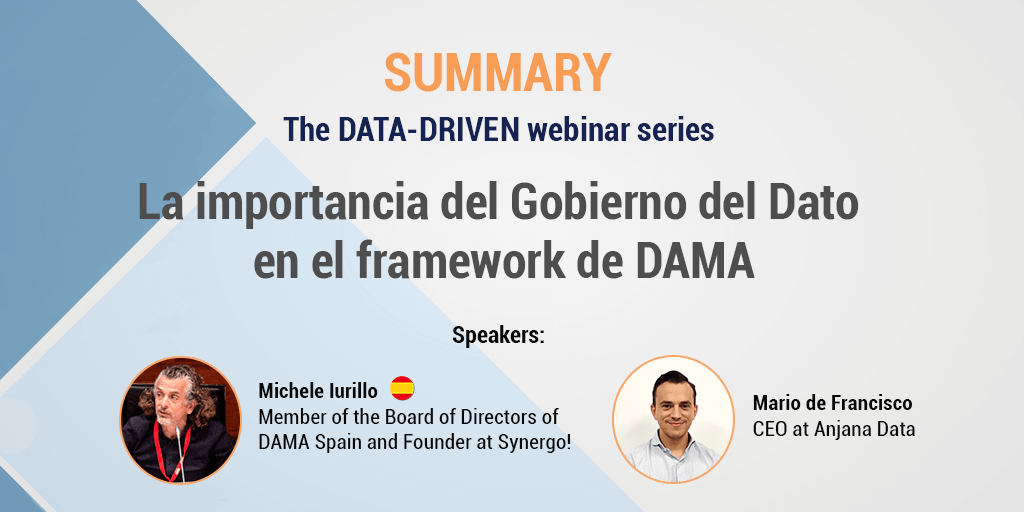
DAMA – the International Data Management Association – elected its first board of directors in 1988. The first chapter was founded in 1980 in Los Angeles. From that moment on, it became clear that the most urgent thing in an industry that was starting to move its first steps was to have a unique theoretical framework. A language that all professionals could understand and that would be a reference when dealing with any Data Management project.
In this third webinar on the serie “The DATA-DRIVEN webinar series” we had the pleasure of talking with Michele Iurillo, member of the board of directors of DAMA Spain and Founder of Synergo! who together with Mario de Francisco, CEO of Anjana Data, solved some doubts about Data Management and the importance of Data Governance in the framework of DAMA.
But… What is really Data Management?
To quote DAMA, Data Management is: the development, execution, and monitoring of plans, policies, programs, and practices that deliver, control, protect, and enhance the value of data and information assets throughout their life cycles. From its foundation in 1980 to 2020, many things have changed, there are new technologies, there are even companies that have among their assets almost exclusively data, but DAMA’s methodology is still the best foundation for a professional who wants to focus his or her knowledge on information assets. DAMA defines Data Management as a set of 11 knowledge areas and thanks to the DMBoK 2 reference it has created a framework of excellence and good practices that is a reference worldwide. A volume of more than 700 pages that DM professionals use and quote almost like the Bible. The DMBoK 2 has created a framework of excellence and good practice that is referenced worldwide. This methodology identifies Data Management in 11 Areas.
There are many frameworks but DAMA resists technology and paradigm changes because it is oriented to a more semantic and philosophical side of DM. If it is true that someone says that there are “poets” missing from Data Management, they surely have DMBok2 on their shelves.
Here are some important points from both presentations:
According to the DMBoK2:
And something also VERY IMPORTANT: The technology of being an enabler and accelerator for data governance but not solving the basic needs by itself, needs strategy, people and processes.
If you want to know more about how Anjana Data can help you in your data strategy by changing the vision of data governance in your organization, request a demo.
You can watch the complete webinar La importancia del Gobierno del Dato en el framework de DAMA video in our Youtube channel, where you will also find more videos related to Data Governance. You can subscribe to receive notifications of new videos.